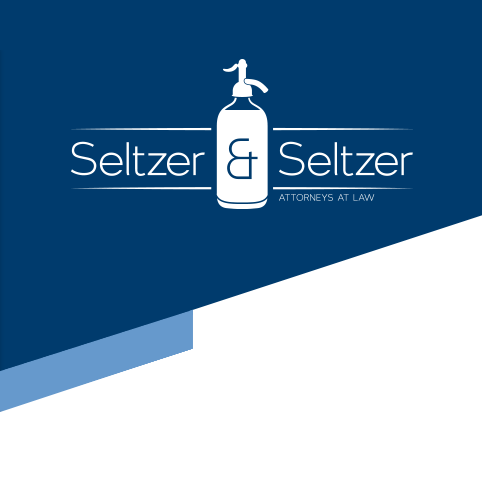You have questions...
We have the answers

How May We
Help You?
At Seltzer & Seltzer, L.C., we focus on a few specific areas of law in seven states so we understand the details of what you are facing every day. Whether you need to learn how to file a mechanic’s lien, collect a contractor’s lien, pursue overdue construction debt payments, negotiate business contracts, or create a small business from the ground up, we can help.
specific areas of law in these seven states:
- Georgia
- Illinois
- Iowa
- Kansas
- Missouri
- Nebraska
- Oklahoma
Construction Law & Other Questions
Here are some answers to the questions we receive the most about our services.
If we missed anything, please do not hesitate to contact us. We’ll be happy to help.
Collection Tips
Acting promptly to collect debts enhances the likelihood of recovering overdue accounts receivable. With each passing month a delinquent becomes less collectible. If you take your debtors to court to compel collection, the key to a successful judicial result is good paperwork.
Mechanics Liens
Mechanic’s Lien Claims are valuable and powerful collection tools. When done properly a Mechanic’s Lien Claim allows you to assert rights against the real estate and obtain payment directly from the property owner, even if you did not contract with the property owner and even if the property owner has already paid someone else for the work. Mechanic’s liens are particularly useful when your customer is insolvent, bankrupt or non-responsive. Mechanic’s Lien Claims are useful but can only be obtained by diligently complying with the relevant law. Lien requirements and deadlines vary from state to state and can be different depending on whether the property is residential or commercial. Prompt attention is important and it is usually a good idea to contact a construction attorney if a bill hasn’t been paid and the job has been completed for 60 days. Many people mistakenly believe a Mechanic’s Lien is passive – that the Lien Claimant must wait to be paid until the property owner sells the real estate before the Lien Claimant will be paid. Such a belief is false for two reasons – if a Petition to Enforce the Mechanic’s Lien is not filed with six months to a year (depending on the state), the Lien Claim expires no matter how otherwise meritorious it may be. Second, a Lien Claim may actively foreclose on the real estate, once the Lien Claim is adjudicated, just like an unpaid mortgage lender.
Lien Waivers
Often times a customer will ask that you execute a Lien Waiver in order to be paid. This can cause problems if you execute an “absolute” lien waiver in exchange for a partial payment. It is a good idea to review a Lien Waiver with an attorney if you are being asked to sign before being paid in full. Without intending to do so, an unqualified Mechanic’s Lien Waiver may waive all lien rights even if:
- Payment is only partial.
- Work is continuing.
- Payment is dishonored by the bank.
- Or for any reason additional money is or may become due and owing.
To preserve Mechanic’s Lien rights, the remedy is a Qualified Lien Waiver, which puts third parties or property owners on notice that the waiving party is preserving some right to file a Mechanic’s Lien Claim in certain circumstances.
Bond Claims & Public Works Projects
- Federal projects (the “Miller Act”) require a payment bond be posted by the general contractor where the contract is valued at $100,000.00 or more. Unpaid subcontractors and material suppliers must give written notice by certified mail, or by some other delivery method which requires a signature, to the general contractor and surety within 90 days of the last furnishing of labor or material. Relief is limited to subcontractors and material suppliers. (No “sub-sub contractors” or “sub-material suppliers” may avail themselves of the Miller Act provisions.)
- Non-federal public projects such as schools, municipal buildings, prisons, etc. often require a payment bond be posted by the general contractor. Unpaid subcontractors and suppliers must give written notice in compliance with statutory and bond requirements. Most payment bonds require Notice within 90 days of the last furnishing of labor or materials, but sometimes the Bond has a longer deadline to give Notice.
Favorable Contract Terms
Whenever possible you should utilize contracts with terms favorable to your position including the following:
- For corporate or limited liability debtors, a personal guaranty executed by the owner or some other employee will provide security and increase the likelihood that you will be paid. Many LLCs and corporations are undercapitalized. If the business becomes insolvent and still owes you money, a personal guaranty allows you recourse against another party.
- An attorney’s fee clause in your contract can obligate your debtor to pay your attorney fees and court costs if a lawsuit is filed.
- You should also include a clause allowing you to recover the maximum interest allowed for your past due invoices in the event of default.
- You should ask your customer to list bank accounts and other information that will be useful if you have to file suit later.
- Limitation clauses which cap your exposure to counterclaims in the event of litigation will protect your business from unforeseeable risks.
Are there different rules for filing a lien on owner-occupied real estate?
Nearly every state imposes additional requirement to perfect mechanic’s lien claims against residential property and in particular, owner-occupied residential property. These restrictions vary from state and to state and are often quite technical.
This information is general response to a typical situation. It may not be applicable in every instance. The exact nature of your legal situation will depend on many facts not known to us at this time. You should understand that this advice and information is general and that your own situation may vary.
ARE THERE ANY TIME LIMITS TO FILING MECHANIC'S LIENS IN ILLINOIS?
In Illinois, material suppliers and subcontractors must give a written Notice of claim to the property owner (or tenant) and any lender no later than 90 days after furnishing the last labor and materials to the jobsite. The lien claim must be filed within 120 days of the last labor or materials delivered or used on the job site. Unlike Missouri, there is no requirement that 10 days elapse between the delivery of the Notice and the filing of the Lien. Once the lien claim is filed, a lawsuit must be filed to enforce the mechanic’s lien.
This information is general response to a typical situation. It may not be applicable in every instance. The exact nature of your legal situation will depend on many facts not known to us at this time. You should understand that this advice and information is general and that your own situation may vary.
ARE THERE ANY TIME LIMITS TO FILING MECHANIC'S LIENS IN IOWA?
In Iowa, lien claimants generally must file a Preliminary Notice as a condition precedent to filing a mechanic’s lien claim. The Notice is filed with the Secretary of State. With respect to subcontractors and material supplies to residential projects, there is not an established deadline but, in general, the sooner the Notice is filed, the better as the timing of the notice can affect a lien claimant’s rights; a general contractor for a residential project may be required to provide a “Notice to Owner” prior to commencing work. For commercial projects, the Notice must be received within 30 days of first furnishing labor and/or materials. Mechanic’s lien claims must be filed within 90 days of completing the contract and the lawsuit to enforce the lien must be filed within two years of the expiration of that 90-day period.
This information is general response to a typical situation. It may not be applicable in every instance. The exact nature of your legal situation will depend on many facts not known to us at this time. You should understand that this advice and information is general and that your own situation may vary.
ARE THERE ANY TIME LIMITS TO FILING MECHANIC'S LIENS IN KANSAS?
A contractor who contracts directly with the property owner must file its lien claim within four months of the last day of work. Subcontractors must file liens within three months of the last day of work. Additional requirements apply to residential property including the requirement that a “Warning Statement” is delivered to the Property Owner by a subcontractor as a condition of asserting a lien. Suit to enforce the Mechanic’s Lien must be filed within one year of completion of the contract.
This information is general response to a typical situation. It may not be applicable in every instance. The exact nature of your legal situation will depend on many facts not known to us at this time. You should understand that this advice and information is general and that your own situation may vary.
ARE THERE ANY TIME LIMITS TO FILING MECHANIC'S LIENS IN MISSOURI?
In Missouri, a lien claim must be filed within six months after the last date that labor or material was supplied to the jobsite. In most instances, a ten-day notice must be sent to the property owner before the lien is filed. Once the lien claim is filed, a lawsuit must be filed to enforce the mechanic’s lien.
This information is general response to a typical situation. It may not be applicable in every instance. The exact nature of your legal situation will depend on many facts not known to us at this time. You should understand that this advice and information is general and that your own situation may vary.
ARE THERE ANY TIME LIMITS TO FILING MECHANIC'S LIENS IN NEBRASKA?
A lien claim must be filed no later than 120 days after final furnishing of labor and/or materials. The lawsuit to enforce the lien must be filed within two years of the lien claim. Nebraska provides that a “Notice of Lien Liability” must be served to the property owner if the construction is for a residential project and the owner is defined as a “protected party”. There is not generally a requirement to serve any other type of notice but good practice dictates that it is often advisable to serve the property owner with a “Notice of Right to Assert a Lien” in order to preserve lien rights.
This information is general response to a typical situation. It may not be applicable in every instance. The exact nature of your legal situation will depend on many facts not known to us at this time. You should understand that this advice and information is general and that your own situation may vary.
WHAT INFORMATION SHOULD A BUSINESS' INVOICES CONTAIN TO MAKE AN ENFORCEABLE LIEN CLAIM?
Contracts and invoices should contain detailed information reflecting the goods and services furnished and the address the labor and materials were furnished to.
This information is general response to a typical situation. It may not be applicable in every instance. The exact nature of your legal situation will depend on many facts not known to us at this time. You should understand that this advice and information is general and that your own situation may vary.








